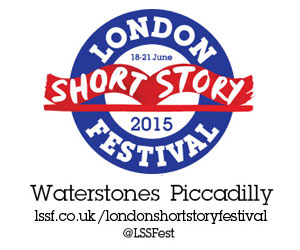Wales Arts Review will be at the London Short Story Festival on Saturday at 3pm for our event A Fiction Map of Wales. Fiction Editor, John Lavin, will be joined by four celebrated contemporary Welsh authors: Carys Davies, Cynan Jones, Francesca Rhydderch and Rachel Trezise. Here, Lavin talks to all four writers, and also to the Festival Director, Paul McVeigh.
Carys Davies
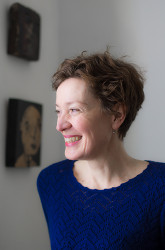 Carys, first of all, congratulations on being shortlisted for the Wales Book of the Year Award and now, the prestigious Frank O’Connor prize. Have you been surprised by the overwhelmingly positive reaction to The Redemption of Galen Pike?
Carys, first of all, congratulations on being shortlisted for the Wales Book of the Year Award and now, the prestigious Frank O’Connor prize. Have you been surprised by the overwhelmingly positive reaction to The Redemption of Galen Pike?
Thank you so much. No writer ever knows how their book’s going to be received and it is a strange experience when, after years of working away on things in a room by yourself, you eventually come up for air, blinking into the light. I knew that I liked the book, and I knew that the editors who’d published some of the individual stories along the way did, but there’s always the fear that a book will sink without trace because it just doesn’t manage to get any exposure – the fear that it won’t even get into the hands of readers so that they can make up their mind whether or not they like it. It’s why prize shortlists are so important for writers – it means the book at least gets that chance.
The London Short Story Festival looks set to be glorious celebration of short fiction. Do you think that the medium of the short story is in particularly rude health at the moment – and if so, why? And are there any contemporary short story writers that you especially admire?
I do, yes. These feel like very good times for the short story in the UK. Part of the reason is that committed and energetic independent publishing houses like And Other Stories, Comma, Freight, Galley Beggar, Parthian, Salt, Seren and Unthank are discovering and supporting excellent new writers, as well as supporting more established ones.
I think it’s helped, too, that well-known and highly regarded novelists like Sarah Hall, Rose Tremain, AL Kennedy and Tessa Hadley have continued to publish and champion the form.
And at the same time, many of the great contemporary American short story writers are now becoming better known and more widely read in the UK, showing people just how amazing the short story can be – among them George Saunders, Lorrie Moore, Lydia Davis, Ron Rash, James Salter, Amy Bloom, Tim Gautreaux, Anthony Doerr and Elizabeth McCracken.
I do love the American short story. I lived in the US for 11 years and it’s where I started trying to write my own, after discovering writers like Flannery O’Connor, Eudora Welty, Bernard Malamud and John Cheever. It would be hard to single out my current favourites but George Saunders, Ron Rash and Tim Gautreaux are definitely somewhere at the top.
The Wales Arts Review event that you are reading at celebrates the contemporary short story in Wales. What do you think of the current scene in Wales?
I think all the factors we’ve just been talking about are having an effect in Wales, just as they are in Scotland and England. And I’ve hardly mentioned the Irish yet, but I think having them just across the water is important too – they have such a such a long and still astonishingly vibrant short story tradition and are, I think, an inspiration. I think what’s striking about the past few years, and about the present moment, is that more and more, the names of Welsh writers are cropping up in any conversation about the short story – writers like my fellow panelists, Rachel Trezise, Cynan Jones and Francesca Rhydderch, and others like Deborah Kay Davis, Joe Dunthorne and Thomas Morris.
As for the future, it’s important, of course, that Welsh writers, like writers from anywhere else, are able to continue writing short stories in a market where it can be difficult to do that, except out of love. On the whole, bigger publishers remain chary of taking on a short story collection – at least without the promise of a novel to follow – which is why independent Welsh publishers like Seren and Parthian, and journals like Wales Arts Review, who are discovering, commissioning, and supporting new and established writers, are so important.
You will be reading your Wales-set story, ‘On Commercial Hill’, at our event. Could you tell us a little bit about what to expect?
I very rarely write about anything that comes directly from my own life, but ‘On Commercial Hill’ is a bit of an exception. The missing person in my childhood was my paternal grandfather, who I never met because he died young and I only ever saw him in the one photograph my widowed grandmother had of him on the mantlepiece in her house in Pontycymer. I think this story began as a way of trying to imagine him into existence, and it unfolds in the two places which were important to me as a child: the coast near Bridgend in south Wales, and in the valleys to the north. Both are places I left when I was very young but return to again and again in my imagination; both places remain both vivid and sharp and at the same time distant in an almost mythical way – remote, and full of possibility.
Finally, what next? Are you working on new material at the moment?
I’ve just finished two new stories. One is the story of a fifteen year old boy, his sister, and his family, and it’s my first ever courtroom drama. It’s taken me years to write it but I think it’s finished. I will leave it in a drawer now over the summer and look at it again in September and try and decide if it really is. I’ll do the same with the second story, which is about a woman and a small boy who spend a day together. I always work on several things at once and I also have two other things I keep returning to, adding to, but I’m not sure what they are yet or whether I will ever be able to pull either of them off.
Cynan Jones
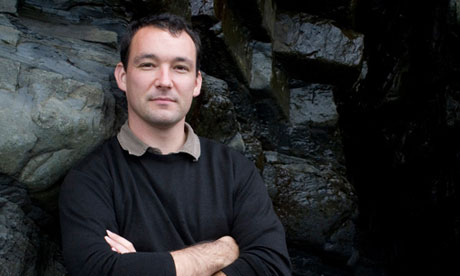 Cynan, first of all, congratulations on winning the Fiction Category at the Wales Book of the Year Award. Have you been surprised by the universally positive reaction to The Dig?
Cynan, first of all, congratulations on winning the Fiction Category at the Wales Book of the Year Award. Have you been surprised by the universally positive reaction to The Dig?
All you can do is write as strongly as you can. You know, as soon as you commit to a story, if the story has any real edge, that some people will be put off by the subject matter, or not like the characters, or dislike the ending. Something will be wrong for some people. Those things you have to accept. But you need to know that they are wrong if they think the writing is wrong.
What’s surprised me with the reaction to The Dig is how positive it’s been given how tough a book it is. The language had to be absolutely right to pull that off.
The London Short Story Festival looks set to be glorious celebration of short fiction. Do you think that the medium of the short story is in particularly rude health at the moment, and if so, why?
Popularity is generally artificial. The short story is in rude health because finally there’s more noise being made about the form. It’s also a blunt necessity of living by writing nowadays that a writer needs to find drip feed income. Short stories offer the odd £80, £100 here and there, and keep things moving quicker than the glacial process of longer work. So, I think there are good writers writing short stories for this reason, perhaps more than those writers would naturally gravitate to the shorter form.
Are there any contemporary short story writers that you especially admire?
I have to admit that I didn’t read a great deal of British short stories until I landed on the Sunday Times EFG shortlist. Since then I’ve been blown away by the stuff I’ve read. Which makes it an impossible question to answer properly – more a discussion over a pint! Stand alone stories by myriad writers. However…
I like short story writers who to commit to a style, or are otherwise experts at many styles. As far as contemporary British short story writers go, Clare Keegan is superb; a different Ireland, to me, from the also good Colin Barrett, Kevin Barry. Tyler Keevil is great, Rachel Trezise. These people are the first group. They really present the sense of a place, a specific thing. Then you have Tom Lee – as good a stylist as anyone I’ve read. Carys Davies. I thought Jon McGregor’s latest collection was superb.
The Wales Arts Review event that you are reading at is based around the contemporary short story in Wales. What do you think of the current state of the short story in Wales?
This links to my answer about the efforts to make more noise about the short story. With that, more writers can also be showcased than would be if we had to wait for their longer work to come out, and then to surface through the difficult layers between publication and visibility. We have to be careful not to overdo it though. The more platforms for short stories that appear, the more short stories are needed. It’s important the level doesn’t drop to fulfil the demand.
Finally, what next? Are you working on a new book at the moment?
I am. And there are a few other things in the mix too.
Francesca Rhydderch
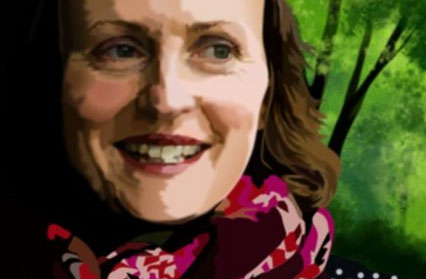 The London Short Story Festival looks set to be a glorious celebration of short fiction. Do you think that the medium of the short story is in particularly rude health at the moment, and if so, why? And are there any contemporary short story writers that you especially admire?
The London Short Story Festival looks set to be a glorious celebration of short fiction. Do you think that the medium of the short story is in particularly rude health at the moment, and if so, why? And are there any contemporary short story writers that you especially admire?
The short story is always in rude health, I think, but it’s true that at the moment it’s receiving more media attention due to high profile competitions and awards. As for reading, sometimes I’ll immerse myself in the work of a particular author for a few months – recently I was completely taken up with Muriel Spark and Joyce Carol Oates, for example. At other times, I’ll read a range of work, just to get a sense of what prominent contemporary authors are trying to do with the short story. I usually read them in magazines or anthologies, and I try to read at least a few new short stories a week.
The Wales Arts Review event that you are reading at is a celebration of the contemporary short story in Wales. What do you think of the current scene in Wales?
The short story scene in Wales is wonderfully vibrant. There are so many short fiction writers of different ages and at varying stages in their careers who are producing, publishing and performing their work. Despite the economic downturn, the publishing scene for stories is remarkably good too, with indie publishers Seren and Parthian bringing out anthologies, and magazines New Welsh Review, Planet, Wales Arts Review – and your own The Lonely Crowd of course! – offering publishing opportunities.
You will be reading your Fiction Map of Wales short story, ‘Love: A Pathology’ at our event. Could you tell us a little bit about what to expect from the story?
I love reading simple stories with complex layers of emotion. In this story (about a Russian woman living in rural west Wales) I wanted to see if I could unravel a lifetime of love of different sorts in a relatively short piece of fiction.
Are there any other events you’re particularly looking forward to seeing at the festival?
There are so many brilliant line-ups, but I’m especially looking forward to the BBC National Short Story Award 10-year celebration on Friday evening, and the session on short story gatekeepers on Saturday morning.
Finally, what next? Are you working on new material at the moment?
I’m slowly putting together a collection of short stories, and am developing a second novel. But somehow, in the middle of all that, I’ve also been caught up by a novella. I was wary at first, as I don’t like working on too many different things at the same time, but it seems to have arrived fully formed, and won’t go away. It’s troubling but exciting.
Rachel Trezise
The London Short Story Festival looks set to be glorious celebration of short fiction. Do you think that the medium of the Short Story is in particularly rude health at the moment, and if so, why? Are there any contemporary short story writers that you especially admire?
The short story does seem to be in particularly good health at the moment as so many festivals and events have sprung up around it. I travelled to China earlier this year with Adam Marek and Zoe Gilbert to take part in an event at Beijing Book Festival billed as ‘The British Short Story’, so it’s something we’re beginning to export too. My favourite short story writers tend to be American big-hitters; Daniel Woodrell, Annie Proulx, Amy Hempel.
The Wales Arts Review event that you are reading at is based around the contemporary short story in Wales. What do you think of the current state of the short story in Wales?
Again, the short story seems to be doing very well in Wales which wasn’t the case when I began my first collection. Lit Wales, our national organisation for developing and promoting literature, has recognised it recently with a dedicated short story event. In some ways it’s become a little too conventional with new authors feeling they have to write a collection of short stories, that it is a box that needs to be ticked.
You will be reading your WAR-commissioned short story, ‘The Abergorki Long Veg Growing Society’, at the Festival, could you tell us a little bit about what to expect from the story?
It’s is about a man who having been made redundant from his job, dreams about growing cucumbers. It’s not a particularly serious story, it’s just something I wanted to explore. How do men who’ve been the traditional breadwinners for such a long time, react when work is no longer an option? Male unemployment has been a continuous theme in the south Wales valleys for thirty years.
Finally, what next? Are you working on any new projects at the moment?
I’m working on a novel but have been for six years, so nothing new there. I’m also working on a play but it’s still in an embryonic state, it’s still in my head, so I won’t say too much about that.
Paul McVeigh, Festival Director
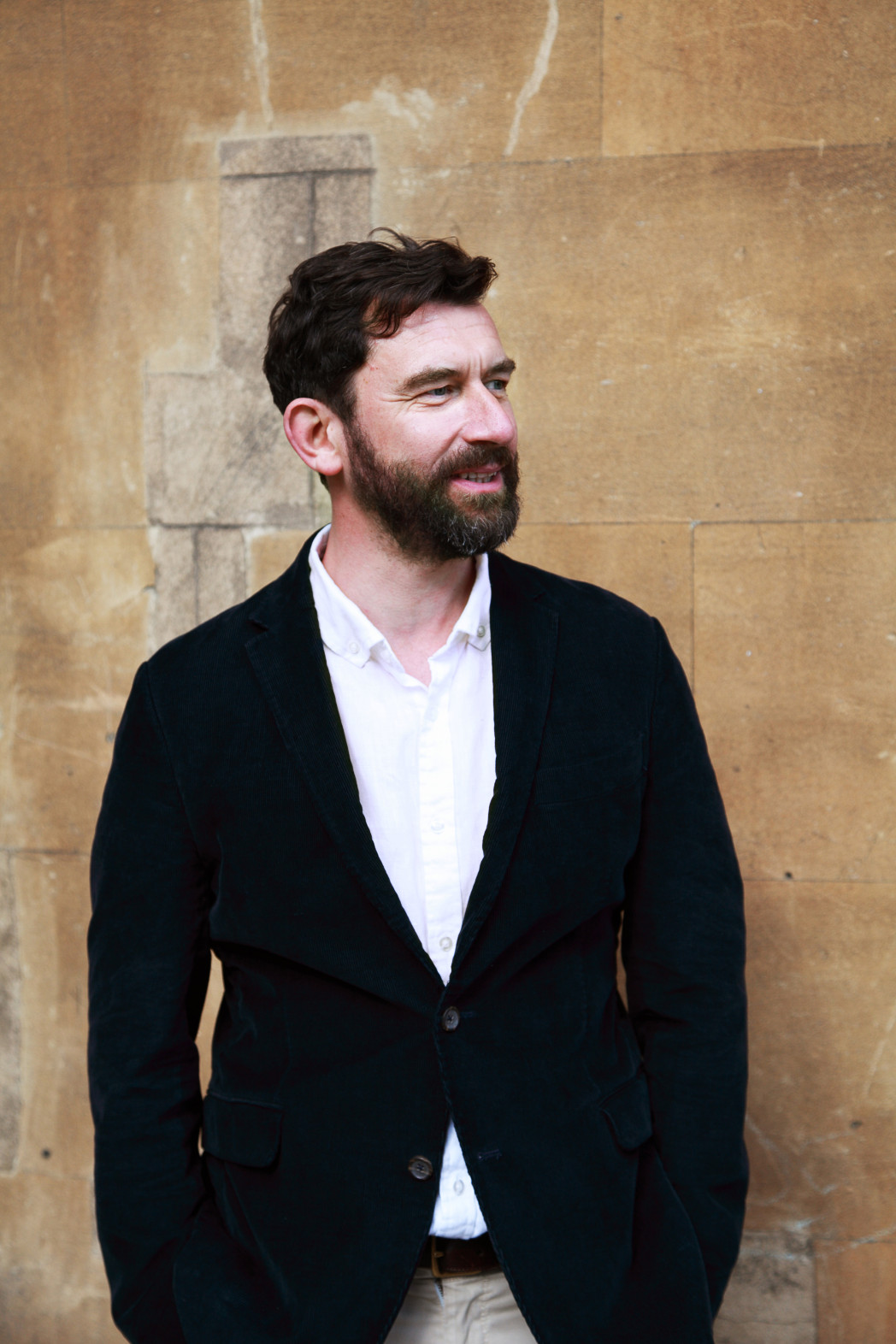 Paul, the line-up for this year’s London Short Story Festival looks incredible. Could you tell us a little bit about how you went about curating this year’s event?
Paul, the line-up for this year’s London Short Story Festival looks incredible. Could you tell us a little bit about how you went about curating this year’s event?
This year I wanted to form partnerships with the short story networks and institutions that are the backbone of the short story in the UK – Word Factory, Booktrust, BBC Radio and their National Short Story Award and the Sunday Times EFG Short Story Award… the list goes on but is in no way complete. This is only the second year and there’s plenty more that can be done in the future.
The second goal in my mind was to have as many authors as I could from around the world so that UK short story writers had the opportunity to hear a variety of voices and to make the festival an international event. Laura van den Berg and Ethel Rohan from the USA, Lynn Coady and DW Wilson from Canada, SJ Naude from South Africa, Murzban Shroff from India, Kevin Barry from Ireland are a few. There’s also a diverse range of voices from the UK.
You’ll be chairing the Modern Voices event on Saturday evening and also the Sunday Times EFG Short Story Award on Sunday afternoon. What should expect from these two events?
On Saturday night Laura van den Berg is making her UK reading debut with a brand new story. With her first collection published here recently and her debut novel out this month you can’t get much hotter and we’ll be finding out why she’s dubbed ‘The Best Young Writer in America’. Joined by the one-and-only Jon McGregor, the first on my wish list for this year’s programme, who promises a new story too! May-Lan Tan, praised by Gordon Lish [Raymond Carver’s editor] is an exciting new voice to fill the bill. All-in-all promises it to be the pick of the festival.
Sunday – well, Kevin Barry, Toby Litt and Tahmima Anam are all reading new work. Kevin and Toby are excellent readers of their work and I’m looking forward to hearing Tahmima read for the first time. Kevin of course is a past winner of the Sunday Times Award, Toby and Tahmima previously shortlisted, so expect top quality writing.
The festival is only in its second year but it already feels like a fixed and important part of the literary calendar. How did the inspiration for LSSF initially come about, and why do you think it has been such an instant hit?
It feels like that to me too. Hard to believe it’s only happened once. The story goes… I had been asking around, trying to get interest in a short story festival for London. I met some people who had thought the same thing but who were either daunted by the money or the time and hard work. It was when I spoke to Spread the Word that the seeds were sewn. They were as excited as I was at the idea and had been talking about it themselves. When I went there as a guest programme for their summer season we decided to throw caution to the wind and create the London Short Story Festival. I got Waterstones Piccadilly to sponsor us in kind providing the venue which had a huge impact and that really sealed the deal.
It was an incredible success, with most events selling out. I think it was partly to do with it being based in London, the venue being in the heart of Piccadilly, the calibre of the authors and the passion of short story writers and readers. And a million other things too… I think in some ways it was just waiting to happen.
Finally, your debut novel, The Good Son, was published this April to rave reviews. How have you found the experience of Mickey Donnelly, your protagonist, being in both the public and the critical domain?
I’ve been busy with the festival and my recent trip to Mexico that I’m still processing all that. It’s been wonderful to receive such a great response and getting messages from old friends and strangers has made me smile. Ridiculous things bring me joy like pics of the book being read on a beach or a cruise. I’m trying to enjoy it all as much as possible and not get too stressed out about whether its successful or well reviewed. Not always easy though. When the festival is over I’ll have more time to let it sink in.
The London Short Story Festival begins this evening at 6pm, Waterstones Piccadilly. The full programme can be downloaded here.


